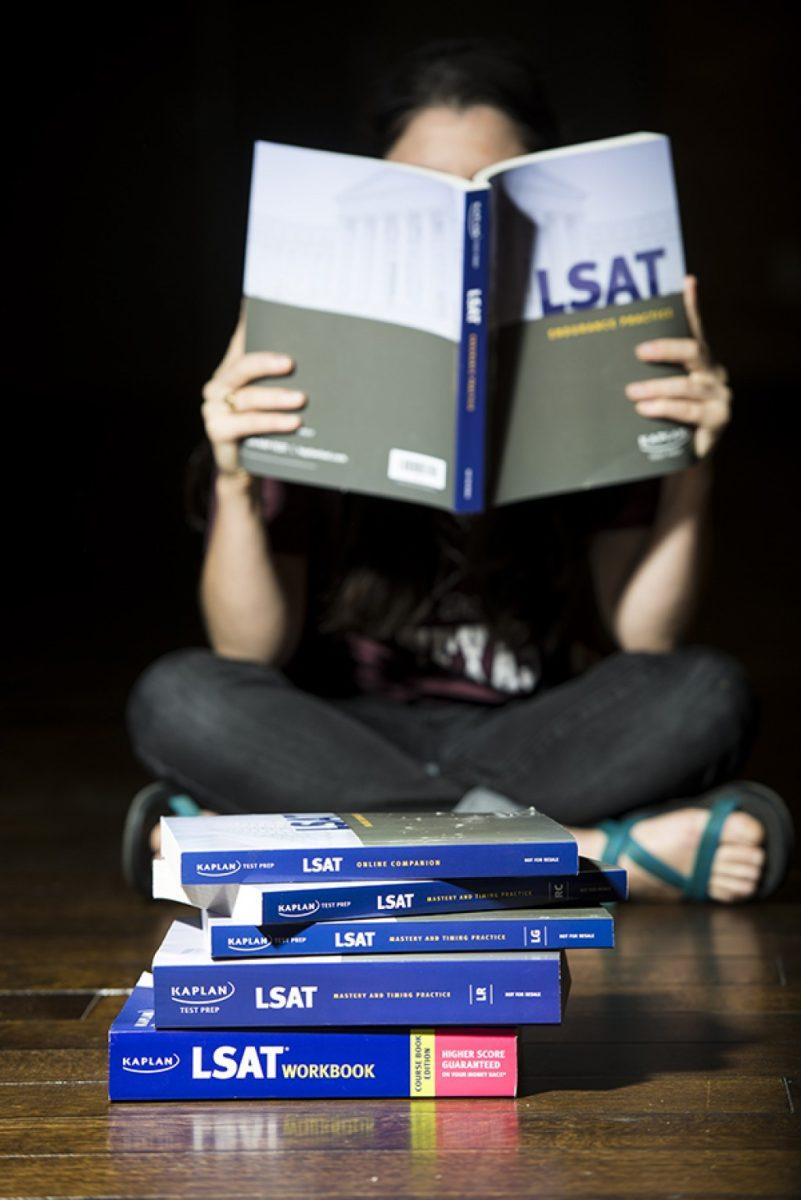The Law School Admissions Test has long been a rite of passage for law school applicants. For some, that’s no longer the case.
The American Bar Association announced in August a new alternative admissions standard for undergraduate students to get into law schools without taking the LSAT. The alternative route requires qualifying students to come from the same home institution, have scored above the 85th percentile on a college admissions exam, be in the top-10 percent of their undergraduate class after six semesters and have a cumulative GPA higher than a 3.5 after six semesters.
Essentially, the alternative caters to strong students from within the law schools’ home institutions, said Aric Short, vice dean and professor of law at Texas A&M University School of Law.
The Texas A&M law school implemented the standard this fall, meaning students who apply for the law school this year will be reviewed under the new standard.
Stephen Alton, law professor and associate dean for evening division programs, said he thinks the new admission standard will be a great incentive to pull in Texas A&M undergraduate students and keep the A&M culture alive within the university system.
Alton said the change could make the law school more likely to admit more of the top students from A&M. Students who meet the criteria could also save time, money and stress by avoiding the LSAT.
Short said the law school is also implementing the standard because it relates to another alternate admissions plan A&M is considering adopting.
This plan, which would be called the 3+3 Program, would allow a student to get an undergraduate degree and law degree from A&M schools in six years, essentially shaving off a year of education and allowing students to save money, Short said.
In the 3+3 Program, a student would join the law school after three years of undergraduate study, Short said. The student’s first year of law school would count for the last year of his or her undergraduate degree and the first year of law school.
Short said if students meet the requirements for the ABA standard, they could also do the 3+3 Program without taking the LSAT — saving them further time, stress and money.
“I would think that would be very attractive for students because it would mean they didn’t have to prepare for the LSAT and take the LSAT and it would shave a year off of their combined undergraduate and law degree programs,” Short said.
Alton said he thinks these benefits allow students to launch into their professional training program earlier and save a year of tuition. The program is focused on attracting students who either know they want to go to law school early on or who are trying to finish school faster for other reasons.
“That’s going to be a small group of people who are going to be seniors who want to go to law school, who don’t want to do their senior year,” Alton said. “Most people at most schools would probably want to do their senior year because they’re enjoying college, they’ve got courses they want to take, they may not want to rush through it, so I can understand that.”
Alton said most students will probably go the traditional admissions route and said he encourages students to consider the state or level in which they want to practice law when choosing a school.
“I’m from Texas,” Alton said. “I knew I wanted to practice here. I went to Harvard undergraduate and I wanted to come back to Texas so my friends and family said, ‘You ought to come back to The University of Texas if you get into that law school,’ and that’s what I did — of course because A&M didn’t have a law school then. But that’s one of the most important factors — where you want to practice.”
Mary Margaret Penrose, A&M professor of law, said students trying to go the traditional route should also consider a fit that works for them, whether they choose their school based on education, reputation or culture.
“If you’re looking for a really student-centered experience where you have access to your faculty or you’re looking for small classes or you’re looking for particular emphasis in the curriculum — at our law school we are very student-focused,” Penrose said. “We spend a lot of time here mentoring students both through the process of law school, but also as they take their skills outside the building.”
Skip the LSAT
October 13, 2014
Photo by Tanner Garza
The American Bar Association announced a new alternative admissions standard for students that does not involve taking the LSAT.
0
Donate to The Battalion
$460
$2500
Contributed
Our Goal
Your donation will support the student journalists of Texas A&M University - College Station. Your contribution will allow us to purchase equipment and cover our annual website hosting costs, in addition to paying freelance staffers for their work, travel costs for coverage and more!
More to Discover










